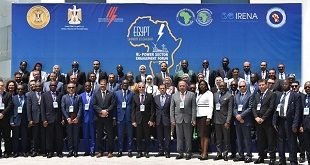
By eriasa mukiibi sserunjogi
Protests show beleaguered presidency ahead
On May 12, the day of President Yoweri Museveni’s inauguration, the influential New York Times weighed in with a headline, “Protests Overshadow Inauguration in Uganda”.
“Ugandans frustrated with their government turned out in overwhelming numbers and boisterous celebration Thursday to welcome home the nation’s leading opposition figure, drowning out a lavish and dignitary-studded inauguration ceremony for President Yoweri Museveni,” the New York Times wrote.
“President Museveni has long been a close ally of the United States,” the paper wrote, but “has recently been riddled with allegations of corruption, facing questions on campaign financing, the purchase of Russian fighter jets and secretive oil contracts,” it continued.
Demonstrations against Museveni’s inauguration were also taking place in the Trafalgar Square in London and New York as he was sworn-in.
The Ugandans in London who converged on Trafalgar Square demanded “fresh, free and fair elections.”
“We want a nation free from corruption, nepotism and sectarianism,” one of the many placards they carried screamed.
Observers say Museveni is facing a uniquely tough patch in his presidency. “He cannot come to terms with an unarmed opponent who defiantly drives around town pulling crowds with the intention of wresting power from him oblivious of the presidential inauguration,” one observer noted.
Yet shortly after the Feb. 18 election, Museveni seemed to have secured a firm hold of the country.
Beating his opponents by a commanding 68 percent and having swept all regions of the country aside, he had won in Buganda against speculation that his volatile relations with the kingdom in his last term would swing the vote in the opposition’s favour.
He followed up the election victory by signing into law a Bill to keep the Buganda king in check and his opponents’ efforts to call people to the streets in protest against what they called a sham election appeared to ring hollow.
But all this was before the advent of the game changer that the Walk-to-Work protests have turned out to be. A month after the launch of the protests, it is becoming increasingly clear that the government security highhandedness will not be the solution. The protests have continued in spite of army and police brutality that has left over 20 people dead and hundreds injured.
At his inauguration, Museveni seemed both keenly aware of the weakened appeal of his brand locally and internationally but was unable to articulate a way out.
He delivered a mixed message of conciliation, threats, and unclear strategy.
Museveni’s unusual conciliatory tone towards his opponents, promised to handle the Walk-to-Work issues, particularly fuel prices. But his proposal to enter talks with the Sudan government to explore possibilities of importing cheaper fuel from there is being viewed skeptically.
Southern Sudan faces the same fuel challenges as Uganda. According to the website of the Logistics Cluster, a joint hub of humanitarian organisations operating in Southern Sudan, petrol was selling for Sudanese Pounds (SDGs) 4.3 (Approx. Shs 3,790 in April. In Uganda it was Shs 3500)
Secondly, Southern Sudan does not have a refinery and exports its crude to Khartoum.
Thirdly, on May 8, just days before Museveni announced plans to import crude from there, the Government of Southern Sudan (GoSS) State Minister of Petrol, Eng. Ali Ahmad Osman had in a radio address, issued a detailed statement explaining why GoSS would continue to work with Khartoum on oil issues.
He said Norway, which is mediating oil issues between the Khartoum and Juba, had advised against building new pipelines that require a lot of money and at least five years to complete. Therefore, and Museveni knows it, it is unlikely that Uganda will be importing oil from Southern sudan in the Short and medium term.
Even other apparent conciliatory gestures like invitations to political opposition party leaders to the inauguration were riddled with cynicism. Shadowy political parties like the Uganda Mandate Party, Uganda Peasants Party, Republican Party, Forum for Integrity in Leadership, and Reform Agenda were conjured out of the woodwork and paraded as bona fide representatives of the opposition. People’s Progressive Party’s Abed Bwanika, who managed less than one percent of the votes cast, was the only former presidential at the ceremony.
Of course the President is aware that the main opposition parties rejected the outcome of the Feb. 18 election and are demanding a fresh election.
On this Museveni remained adamant. In a veiled swipe at the opposition he accuses of being backed by Western countries, he said: “In the last 45 years, the NRM position is well known, we reject puppetry and stand for the genuine independence of Uganda and other African countries.”
This line seemed to sum up the mood of the inauguration.
Robert Mugabe, the Zimbabwean president of 31 years, was in attendance and on arrival received the loudest applause of all foreign guests. Mugabe is famous for scolding his principal challenger, now Prime Minister Morgan Tsvangirai in a power sharing government, for what he calls puppetry.
Museveni emphasised using local resources to deal with the priorities he has set for this term; namely roads, railway, A’ level free education, university student loans and scientific innovations and research.
But many observers know that Museveni’s political star rose largely because of the support he was afforded in aid by western-dominated institutions and countries. His speech, therefore, suggested a change in dealings.
Earlier this year, the International Monetary Fund gave the government up to end of June to fix the economy or risk losing its backing for contracting loans.
So Museveni needs the petrodollars urgently to finance his big government. The US$313 million windfall paid by Tullow Oil in settlement of the Heritage purchase dispute arrived at the right time when Museveni had overspent on re-election, but observers say it will take many years before he gets more money from oil.
Officials at Tullow Oil confirmed to The Independent that commercial oil production is still “some years away” because the waxy nature of the oil in the Albertine Graben requires very high amounts of power to heat transportation trucks or the pipeline. The alternative, itself far from cheap, is building a refinery.
Museveni said at the inauguration that the building of the refinery will take three years. Experts in the oil sector say it could take much longer.
If Museveni is to get any more money from oil during this new term therefore, a source in the donor community said, he can only negotiate for advance payments from the oil companies. But this move, the source added, would strain his relations with donors.
Museveni had set his eyes on reform and promised to toughen on non-performers in his government. But this is an objective he is bound to lose sight of as he battles to regain his hold on affairs.
Opposition sources say the only thing that can make them halt their Walk-to-Work campaign is the intervention of a foreign arbiter. But this, observers say, is unlikely to be welcomed by Museveni since it would undermine his hold onto the country.
Whatever choices he may adopt this term, though, Ugandans seem to be demanding tangible answers. All indicators are that Uganda is ripe for reform. But is Museveni up to the task?
Makerere University political historian Mwambutsya Ndebesa says Museveni’s record has hinged on promoting sycophants and not necessarily performers and he cannot change tack after 25 years in power.
“The most dangerous moment for a bad government is when it begins to reform itself,” wrote the French political thinker Alexis de Tocqueville in the nineteenth century
 The Independent Uganda: You get the Truth we Pay the Price
The Independent Uganda: You get the Truth we Pay the Price


